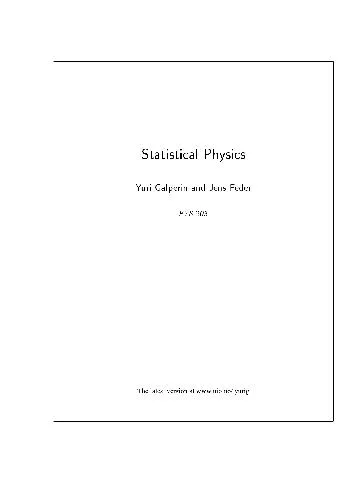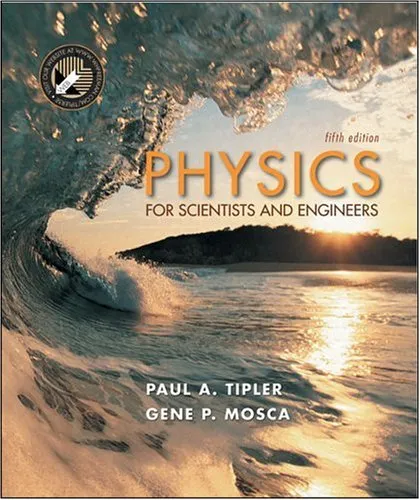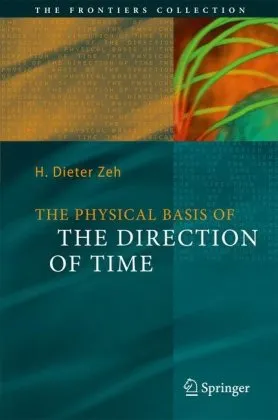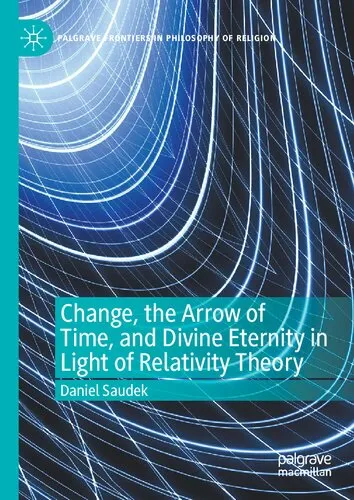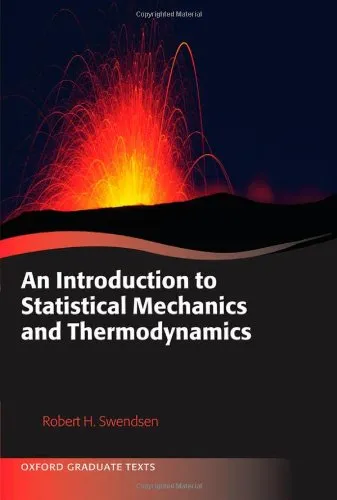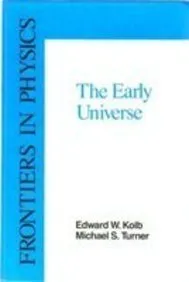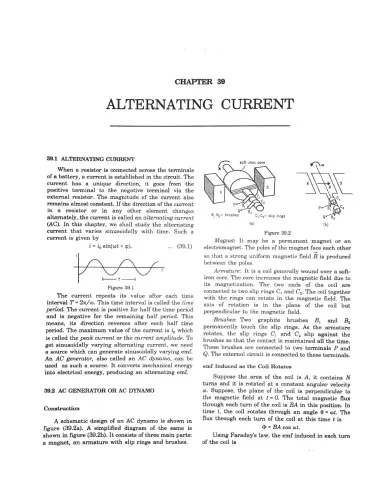Statistical physics
4.5
Reviews from our users

You Can Ask your questions from this book's AI after Login
Each download or ask from book AI costs 2 points. To earn more free points, please visit the Points Guide Page and complete some valuable actions.Related Refrences:
Analytical Summary
The book Statistical physics by Galperin Y. and Feder J. serves as a definitive guide to understanding the probabilistic foundations of physical phenomena. Written for advanced students, academics, and research professionals, it deftly navigates the complex interplay between theory and experimental reality. Readers will encounter a meticulous exploration of how large-scale thermodynamic behavior emerges from the microscopic properties of matter.
The authors systematically develop the mathematical architecture underpinning the subject, beginning from fundamental concepts such as statistical ensembles and moving toward intricate applications spanning condensed matter physics, quantum systems, and complex materials. This rigorous yet accessible structure ensures that the foundational aspects of thermodynamic principles are fully integrated into the discourse.
Information unavailable regarding the publication year or specific accolades, due to the absence of reliable public sources. Nevertheless, the text's depth and clarity stand as testimony to its scholarly merit, serving as an enduring reference for those seeking precise and reliable comprehension of statistical mechanics.
Key Takeaways
From Statistical physics, readers can extract concepts critical for both theoretical and applied sciences. The precision of the authors' approach transforms abstract equations into meaningful predictions and insights.
First, the centrality of microscopic systems in defining macroscopic thermodynamic properties is demonstrated with clarity. Second, the significance of probability distributions, partition functions, and state variables is woven into the analysis. Third, the interplay of temperature, entropy, and free energy is explored in versatile contexts. Fourth, the book equips readers with the mathematical tools to bridge fundamental theory to experimental results. Finally, the work underscores the adaptability of statistical physics in explaining systems far beyond equilibrium scenarios.
Memorable Quotes
In physics, the path from the microscopic to the macroscopic is paved with probabilities. Unknown
Statistical physics transforms randomness into predictable order. Unknown
Understanding thermodynamic principles means unlocking the laws of nature at every scale. Unknown
Why This Book Matters
Statistical physics is more than a text—it’s a framework that empowers the reader to interpret the natural world with analytical precision.
For academics, it offers an indispensable reference to the governing equations and methods that define the field. For professionals, it delivers insight into applying statistical mechanics to problem-solving in engineering, materials science, and computational modeling. For serious readers, it serves as a bridge between pure theory and cross-disciplinary application, ensuring the concepts are deeply embedded and practically utilizable.
The secondary themes of thermodynamic principles and microscopic systems are reinforced throughout the narrative, underscoring their universal relevance across physics and related domains.
Inspiring Conclusion
In closing, Statistical physics invites you on a journey where mathematics and physical intuition converge to reveal the hidden order in complex systems.
Whether you are an academic seeking a teaching cornerstone, a researcher aiming to deepen theoretical mastery, or a professional applying principles to cutting-edge technology, this book provides the scaffold for advanced understanding. Engage with its chapters, reflect on its precision, and allow it to sharpen your perspective on how thermodynamic principles govern the microscopic systems around us.
The next step is yours—read, share, and discuss the insights within Statistical physics, and contribute to the vibrant, ever-evolving conversation in the scientific community.
Free Direct Download
You Can Download this book after Login
Accessing books through legal platforms and public libraries not only supports the rights of authors and publishers but also contributes to the sustainability of reading culture. Before downloading, please take a moment to consider these options.
Find this book on other platforms:
WorldCat helps you find books in libraries worldwide.
See ratings, reviews, and discussions on Goodreads.
Find and buy rare or used books on AbeBooks.
